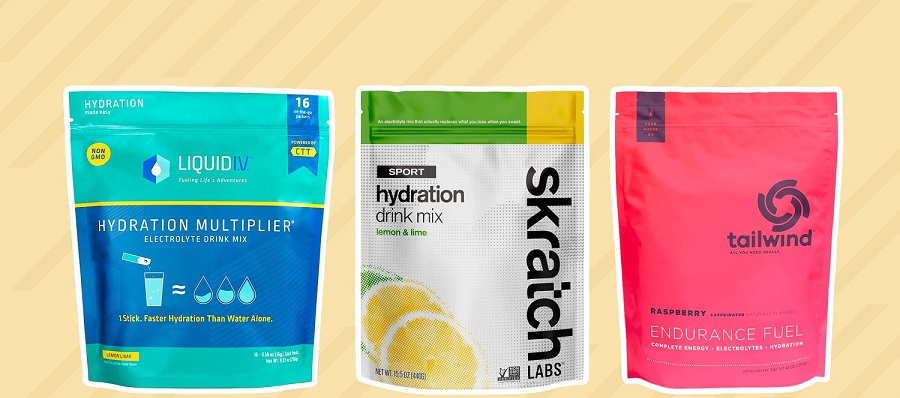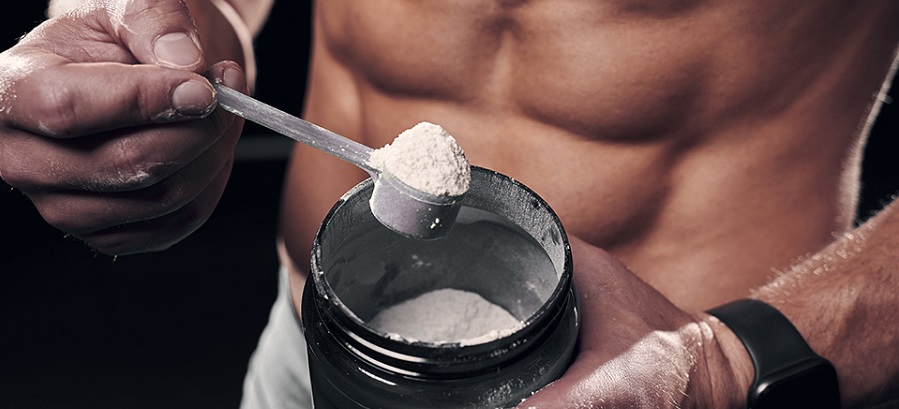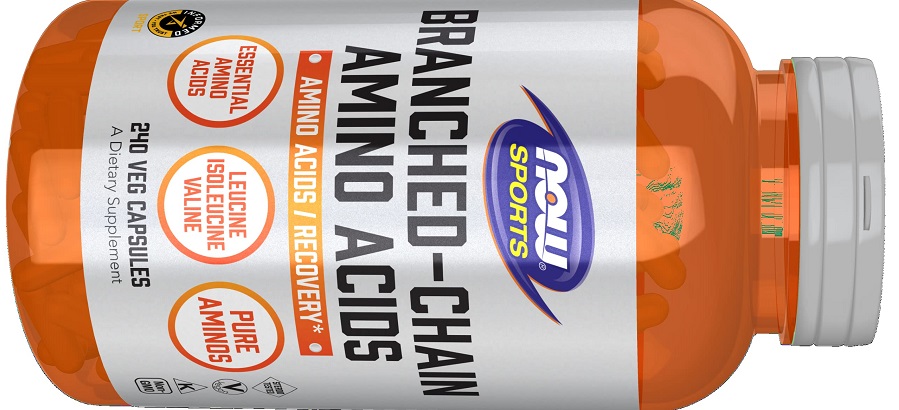Electrolyte drinks are beverages that contain a balanced mix of electrolytes such as sodium, potassium, magnesium and calcium. Electrolytes are minerals that are essential for maintaining proper hydration and normal body function. They help regulate fluid balance, muscle and nerve function, and blood pressure. Electrolyte drinks are important because they can help replace the electrolytes lost through sweating during exercise or hot weather, helping to prevent dehydration and maintain proper hydration levels. They can also help improve athletic performance, reduce muscle cramps, and fatigue. These are important for athletes or people engaging in physical activities that lead to sweating.
How do electrolyte drinks help to hydrate the body?
Electrolyte drinks help to hydrate the body by replacing the electrolytes lost through sweating. When you sweat, your body loses not only water but also electrolytes, such as sodium, potassium, magnesium, and calcium. Drinking plain water alone can't replace these lost electrolytes. Electrolyte drinks, on the other hand, provide a balance of these essential minerals which helps to replenish the electrolytes lost in sweat, and also helps to keep the body hydrated.
When electrolytes are in balance, they help to regulate the movement of fluids in and out of cells, which is important for maintaining proper hydration levels. Additionally, the presence of electrolytes in the blood helps to signal the thirst mechanism, which is why drinking an electrolyte-rich beverage can help to quench thirst more effectively than plain water.
It's important to note that electrolyte drinks should be consumed in moderation, consuming excessive electrolyte drinks can lead to electrolyte imbalance and other health issues.
What are the key electrolytes found in electrolyte drinks?
The key electrolytes found in electrolyte drinks are:
-
Sodium: helps to regulate fluid balance and maintain proper hydration levels.
-
Potassium: helps to regulate muscle and nerve function, and also aids in the balance of fluids in and out of cells.
-
Calcium: helps to regulate muscle contractions and nerve impulses.
-
Magnesium: helps to regulate muscle and nerve function, and also aids in the balance of fluids in and out of cells.
-
Chloride: helps to regulate fluid balance and maintain proper hydration levels.
-
Phosphorus: helps to maintain healthy bones and teeth.
-
Bicarbonate: helps to regulate acid-base balance in the body.
Please note that not all electrolyte drinks will have all these electrolytes, and in varying proportions, depending on the brand and the specific product.
How do electrolyte drinks differ from regular sports drinks?
Electrolyte drinks and sports drinks are similar in that they both contain electrolytes and are designed to help hydrate and replenish the body during and after physical activity. However, there are some key differences between the two:
-
Electrolyte content: Electrolyte drinks typically have a higher concentration of electrolytes than regular sports drinks. They are formulated to provide a balance of essential electrolytes to help replace those lost through sweating, while sports drinks may have a more specific formulation tailored to a particular sport or activity.
-
Carbohydrates: Sports drinks usually contain higher levels of carbohydrates, such as sugar or glucose, which provide energy to the body during intense physical activity. Electrolyte drinks, on the other hand, usually have less or no carbohydrate content.
-
Taste: Electrolyte drinks may have a more pronounced salty taste, due to the high content of electrolytes, while sports drinks are often sweeter.
-
Purpose: Sports drinks are specifically designed to provide energy and hydration during intense physical activity, and are often used by athletes and sportsmen, while electrolyte drinks are meant to replace electrolytes lost through sweating, and are used by a broader range of people, including athletes, hikers, and those who are exposed to heat.
-
Caffeine content: Some sports drinks contain caffeine, while most electrolyte drinks don't.
It's important to note that, not all sports drinks or electrolyte drinks are the same, so it's important to read the label and understand the ingredients and the purpose of each drink before consumption.
What are the benefits of drinking electrolyte drinks during exercise?
There are several benefits of drinking electrolyte drinks during exercise, which include:
-
Improved hydration: Electrolyte drinks help to replace the electrolytes lost through sweating, which can help to improve hydration levels and prevent dehydration.
-
Enhanced athletic performance: Electrolyte drinks can help to improve athletic performance by maintaining proper hydration levels and preventing electrolyte imbalances.
-
Reduced muscle cramps: Electrolyte drinks can help to reduce muscle cramps and fatigue by providing the body with the necessary electrolytes for muscle function.
-
Increased endurance: Proper hydration and electrolyte balance can help to increase endurance during exercise by preventing fatigue.
-
Improved recovery: Electrolyte drinks can help to speed up recovery after exercise by replenishing the electrolytes lost during sweating and maintaining proper hydration levels.
-
Better thirst quenching: Electrolyte drinks can help to quench thirst more effectively than plain water, this is because the presence of electrolytes in the blood helps to signal the thirst mechanism.
It's important to note that, drinking electrolyte drinks alone won't improve athletic performance, it should be combined with proper training, diet, and other healthy lifestyle habits. Also, drinking excessive amounts of electrolyte drinks may lead to electrolyte imbalances and other health issues, so it's important to follow the recommended dosage.
How much electrolyte drink should be consumed during and after exercise?
The amount of electrolyte drink that should be consumed during and after exercise depends on a few factors, such as the individual's sweat rate, the intensity and duration of the exercise, and the ambient temperature. In general, it's recommended to drink about 17-20 ounces of fluid 2 hours before exercising and 7-10 ounces of fluid every 10-20 minutes during exercise.
After exercise, it's important to replenish fluids and electrolytes lost through sweating. A general guideline is to drink about 20-24 ounces of fluid for every pound of body weight lost during exercise. A good way to gauge this is by checking your body weight before and after exercise, or by monitoring the color of your urine, clear or pale yellow urine color indicates adequate hydration while dark yellow or amber color indicates dehydration.
It's important to note that these are general guidelines, and everyone's needs are different, so it's important to listen to your body and drink as much as you need to stay hydrated. It's also important to note that drinking too much electrolyte drinks can lead to electrolyte imbalance, so it's important to follow the recommended dosage for each specific product.
Are there any potential risks or side effects associated with electrolyte drinks?
While electrolyte drinks can be beneficial for maintaining proper hydration and electrolyte balance during and after exercise, there are also some potential risks and side effects associated with their use. Some of these include:
-
Overhydration: Consuming excessive amounts of electrolyte drinks can lead to a condition called hyponatremia, which is characterized by low sodium levels in the blood. This can cause symptoms such as nausea, headache, confusion, and in severe cases, seizures and coma.
-
Electrolyte imbalances: Consuming excessive amounts of electrolyte drinks can also lead to an imbalance of electrolytes in the body, which can cause symptoms such as muscle cramps, twitching, and irregular heartbeat.
-
Tooth decay: Some electrolyte drinks contain high levels of sugar, which can contribute to tooth decay if consumed in excessive amounts.
-
Allergic reactions: Some people may be allergic or sensitive to certain ingredients found in electrolyte drinks, such as artificial sweeteners or preservatives.
-
Interactions with medication: Some electrolyte drinks contain high levels of potassium, which may interact with certain medications, such as blood pressure medication or diuretics, and cause adverse effects.
It's important to note that these risks and side effects are generally associated with excessive or prolonged use of electrolyte drinks, and can be avoided by drinking them in moderation and following the recommended dosage for each specific product. It's also important to consult your doctor or a healthcare professional before consuming electrolyte drinks if you have any medical conditions or are taking any medications.
Can electrolyte drinks be used to treat dehydration?
Electrolyte drinks can be used to help treat dehydration. Dehydration occurs when the body loses more fluids than it takes in and it can be caused by a variety of factors such as sweating, vomiting, diarrhea, and fever. Electrolyte drinks can help to treat dehydration by providing the body with a balance of essential electrolytes, such as sodium, potassium, and magnesium, which are lost through sweating and other bodily functions. Additionally, electrolyte drinks can help to quench thirst more effectively than plain water, which can help to encourage fluid intake.
It's important to note that drinking electrolyte drinks alone may not be enough to treat dehydration in some cases, especially if the individual is experiencing severe dehydration or other symptoms such as dizziness, confusion, or a rapid heartbeat. In these cases, it's important to seek medical attention immediately.
Also, it's important to mention that drinking electrolyte drinks in moderation and following the recommended dosage is important to avoid electrolyte imbalances. It's recommended to check with a healthcare professional before consuming electrolyte drinks, especially if you have any medical conditions or are taking any medications.
How do electrolyte drinks compare to other hydration methods, such as water or coconut water?
Electrolyte drinks, water, and coconut water are all hydration methods that can help to replenish fluids and electrolytes lost through sweating and other bodily functions. However, there are some key differences between the three:
-
Electrolyte content: Electrolyte drinks typically have a higher concentration of electrolytes than water or coconut water. They are formulated to provide a balance of essential electrolytes to help replace those lost through sweating, while water and coconut water have a lower electrolyte content.
-
Carbohydrates: Electrolyte drinks usually contain little or no carbohydrate, while coconut water contains natural sugars, and sports drinks usually contain added sugars or glucose.
-
Taste: Electrolyte drinks may have a more pronounced salty taste, due to the high content of electrolytes, while water is tasteless, and coconut water may have a light, sweet, and refreshing taste.
-
Purpose: Electrolyte drinks are specifically designed to replace electrolytes lost through sweating and maintain proper hydration levels, water is the universal solvent and it is essential for life and can be used for many things, including drinking, cooking, and cleaning, and coconut water is a natural source of hydration and electrolytes, and also contains antioxidants and other nutrients that may benefit health.
-
Caffeine content: Most electrolyte drinks and coconut water don't have caffeine, while some sports drinks contain caffeine.
It's important to note that different hydration methods may be more appropriate for different situations, and that individual needs and preferences may vary. For example, during intense physical activity, electrolyte drinks can be more beneficial due to their high electrolyte content, while during normal daily activities, drinking plain water and coconut water can be a good option.


